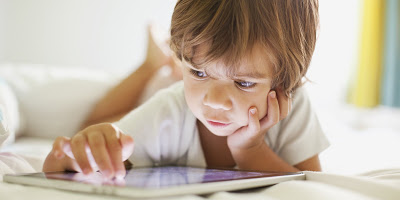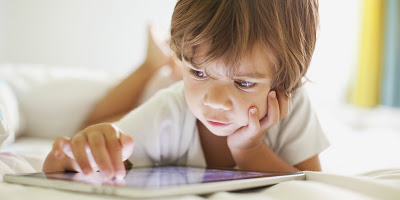For the first time, a scientific study has concluded that touch screens "steal" the sleep of even six-month-old babies.
Touch screens for smartphones and tablets are increasingly in the hands of infants, either because they care about them or because they are a convenient way for busy parents to work. their children.
But the more a toddler touches a touch screen, the less time he sleeps, according to a new British scientific study, the first of its kind in such young children. The study points out that as the number of portable touch screen devices is rapidly increasing in households, this is affecting the sleep of even young children up to six months old.
Researchers at the University of London's Birkbeck and King's Colleges, led by Tim Smith and published in the journal Nature Scientific Reports, studied 715 children aged 6 to 36 months. For each child, the parents reported the average length of day spent with a touch screen, as well as the average length of sleep.
It was found that the more infants spent more time on screens, the less they slept at night. Even though they slept more during the day, they generally slept fewer hours during the 24-hour period than children who did not spend time with a screen.
Indicatively, for each additional hour of "tablet" use during the day, the child slept on average almost 16 minutes less at night. Also, children who used touch screens needed more time to fall asleep.
Scientists have pointed out that since sleep is important for a child's mental development, especially in the first years of life, the new findings should be taken seriously.
"Before we completely ban the use of touch screens, which can have potential benefits, we must first understand in depth how to use this modern technology in such a way as to maximize the benefits and minimize any negative effects on small children, "said Smith.
A previous study by the same researchers had shown that the use of touch screens by babies, instead of just passively watching a screen, helps in the early development of their motor skills. But, according to new research, the price is less sleep.
Source: RES - EIA

